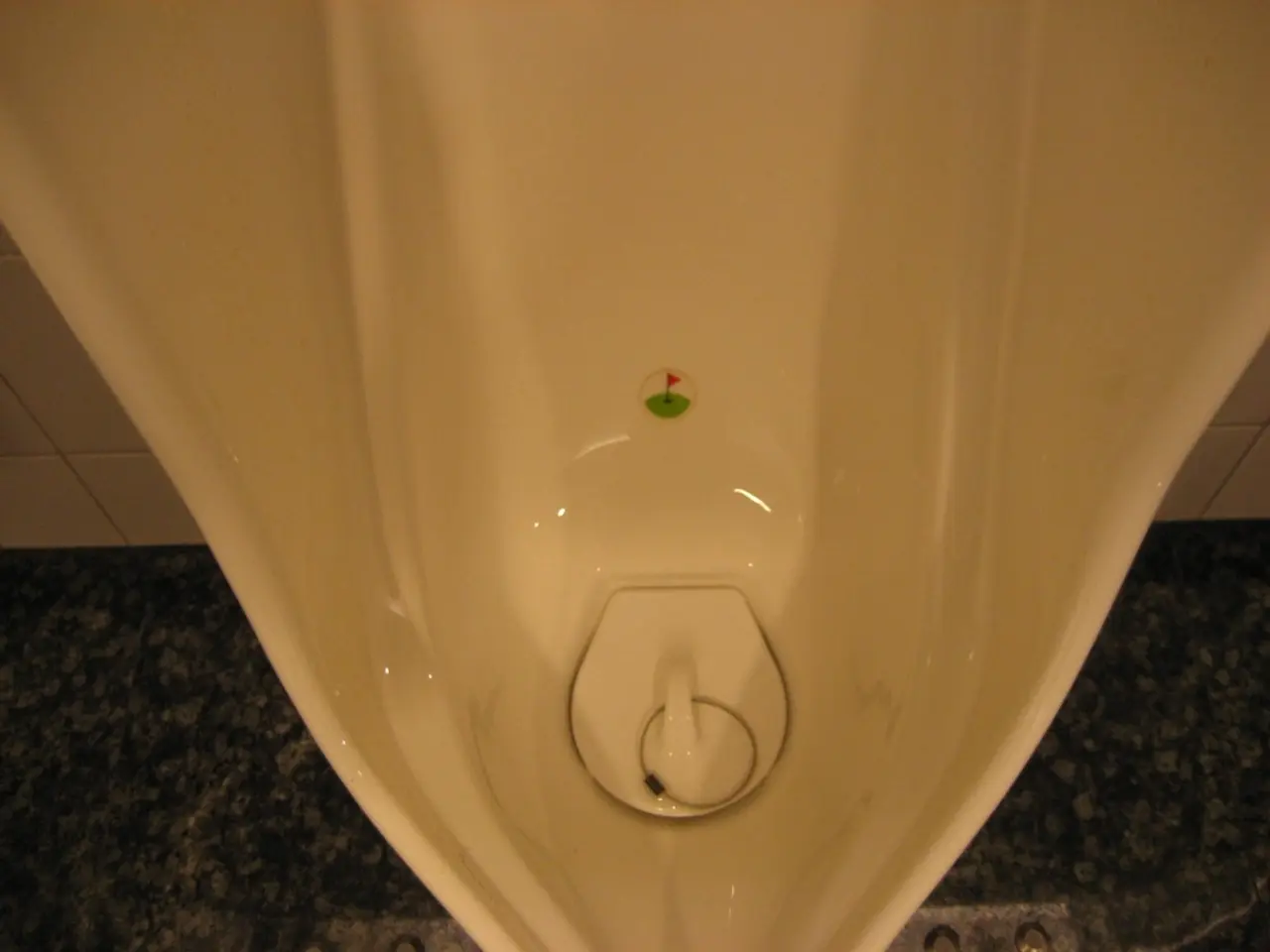Pee as Sterile? Here's the Science's Take on It.
In a world where myths and misconceptions abound, one that has persisted for centuries is the belief that urine is sterile and has healing properties. However, modern scientific testing has revealed that this is far from the truth.
Healthy urine, contrary to popular belief, contains trace amounts of bacteria and other microbes. This misconception arose due to older laboratory techniques that lacked the sensitivity to detect these microorganisms. With advances in technology, it has become clear that urine is not free of bacteria, even in healthy individuals, although the amounts are typically low and harmless for most people[1].
The belief that urine is antiseptic or safe to use for cleaning wounds or as a medicinal remedy is a myth. In fact, urine can contain bacteria, viruses, toxins, and waste products, which may cause infections or irritation if introduced to sensitive areas or open wounds[1][3].
Common misconceptions about urine's use for healing include using it as an eyewash, cleaning wounds, or drinking it for health benefits. These practices are strongly discouraged by medical professionals. Using urine in the eyes can cause inflammation, damage, or even vision loss[3]. Urine, while it may seem antiseptic in folklore, is not sterile and can introduce harmful bacteria, increasing infection risk when used to clean wounds. Drinking urine is not recommended due to the presence of waste and possible pathogens[3].
Medical experts emphasize that urine should be regarded as a waste fluid meant to be expelled, not reused for health or healing purposes. Safe alternatives exist for wound cleaning and eye irritation, such as sterile saline or artificial tears, and these should be preferred[3].
It's also worth noting that peeing on an injury caused by venom can activate venom release, and the levels of bacteria in urine increase as it travels through the urinary tract and out of the body. Furthermore, drinking urine can increase dehydration due to its salt and waste content[1].
In light of these findings, it is crucial to maintain good hygiene practices. Hand washing is necessary to prevent the spread of bacteria around the body, to other people, and to food. Washing hands after using the toilet is important, even if urine were sterile, as the bathroom is not sterile either and contains microbes on various surfaces[1].
In summary, the idea of urine being sterile and healing is debunked by modern science, which highlights the presence of microbes in urine and the health risks of using it outside the body for medical or cosmetic purposes[1][3]. It is never a good idea to drink urine or use it to treat an injury or illness.
[1] Mayo Clinic Staff. (2021). Urine: What's normal and what's not. Mayo Clinic. https://www.mayoclinic.org/tests-procedures/urinalysis/about/pac-20385081
[2] National Kidney Foundation. (n.d.). Urine: What's normal and what's not. National Kidney Foundation. https://www.kidney.org/atoz/content/urine
[3] American Academy of Ophthalmology. (2021). Urine as a treatment for eye problems. American Academy of Ophthalmology. https://www.aao.org/eye-health/tips-prevention/urine-as-a-treatment-for-eye-problems
- Advances in technology have debunked the myth that urine is sterile and has healing properties.
- In reality, healthy urine contains trace amounts of bacteria and other microbes.
- The misconception that urine is antiseptic or safe for wound cleaning or medicinal purposes is a myth.
- Urine can contain harmful bacteria, viruses, toxins, and waste products that cause infections or irritation.
- Eyewash, wound cleaning, or drinking urine are practices strongly discouraged by medical professionals.
- Using urine in the eyes can lead to inflammation, damage, or vision loss.
- Drinking urine is not recommended due to the presence of waste and potential pathogens.
- Medical experts advise that urine should be considered a waste fluid meant to be expelled, not reused.
- Safe alternatives for wound cleaning and eye irritation include sterile saline or artificial tears.
- Peeing on an injury can activate venom release due to the presence of bacteria in urine.
- The levels of bacteria in urine increase as it travels through the urinary tract.
- Drinking urine can increase dehydration due to its salt and waste content.
- Good hygiene practices are essential to prevent the spread of bacteria.
- Hand washing is a crucial step in maintaining good hygiene.
- Even if urine were sterile, the bathroom is not sterile and contains microbes on various surfaces.
- Maintaining good health includes understanding the truth about urine's composition and potential hazards.
- Chronic diseases like chronic kidney disease and neurological disorders can impact eye health and hearing.
- Therapies and treatments for these medical conditions may be found in advancements in science and technology.
- Workplace wellness programs often focus on mental health, fitness, and healthy eating.
- Employers are increasingly recognizing the importance of addressing mental health in the workplace.
- Skin care is an essential aspect of health and wellness, with various products and therapies available on the market.
- CBD, a natural compound, has been studied for its potential benefits in treating chronic pain, anxiety, and skin conditions.
- Medication, including those under Medicare, play a critical role in managing chronic diseases and medical conditions.
- A balanced diet, rich in nutrition, is essential for overall health and the management of chronic diseases like chronic kidney disease.
- Migraines can severely impact quality of life, and effective therapies and treatments are being developed with the help of artificial intelligence.
- Eye health, hearing, and skin care are interconnected with nutrition, further emphasizing the importance of a balanced diet.
- Fitness and exercise are essential components of any comprehensive health and wellness plan.
- Home improvements such as interior design and gardening can contribute to sustainable living and promote mental health.
- Budgeting, saving, and managing debt are key aspects of personal finance and wealth management.
- Cybersecurity is growing in importance as we become increasingly reliant on technology and digital platforms, particularly for lifestyle choices such as dining, travel, shopping, and entertainment like movies and streaming services.







